Mystery over Modern Masters Authenticity Boils On
- February 22, 2012 11:22
Court documents have begun to expose a little bit of the intrigue behind an art world scandal. The authenticity of a cache of works attributed to giants of Abstract Expressionism, from Jackson Pollock to Robert Motherwell, Mark Rothko to Willem de Kooning, is under investigation by the F.B.I. Details are emerging piecemeal in lawsuits.
When Knoedler & Co., the 165-year-old art gallery on Manhattan's Upper East Side, closed abruptly in December last year, a number of disputes over artworks bubbled into the limelight.
A London hedge fund director wanted his $17 million back from Knoedler for a work he purchased there as a Pollock that would not be touched by the major auction houses, or included in the artist's catalogue raisonne.
Motherwells sold by the gallery were also in question with a lawsuit settled in October over one artwork deemed a forgery; other works sold as part of his "Spanish Elegies" series were labeled as fakes by the artist's Dedalus Foundation.
Pigments used in some of the contested artworks were not invented until after the artist's death. Provenance was not verified.
The point person for the questionable works was one Glafira Rosales, a Long Island art dealer, who funneled works to Knoedler and other reputable galleries for 17 years.
Rosales said her source for the artworks was a friend based in Mexico City and Zurich who wanted to remain anonymous, and whose father had purchased the works through the late art dealer David Herbert.
Then-president of Knoedler, Ann Freedman, went along, considering the artworks to be genuine in her eyes. Other experts gave their informal nods of approval.
In court testimony, Freedman says she sold 15 or 16 of the works at Knoedler for a total of $27 million to $37 million, including the $17 million Pollock "Untitled 1950" that the buyer is demanding a refund for.
Freedman herself bought over a half million dollars worth of art for her own collection from Rosales.
Last fall, court papers showed that Rosales named a source different from Herbert for the artworks, John Gerzso. She claimed Gerzso's father assembled the collection through Filipino painter, Alfonso Ossorio, who had lived near Pollock and de Kooning in the Hamptons. Gerzso denies the connection to Rosales.
The civil suit over the pricey "Pollock" lingers, as do a number of questions over how to prove the authenticity of art in court when experts disagree.






100x100_n.jpg)
100x100_c.jpg)
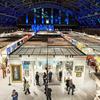
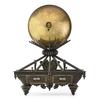

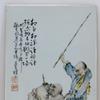
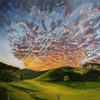
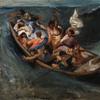

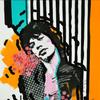

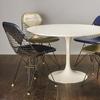
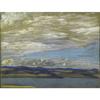
100x100_c.jpg)

